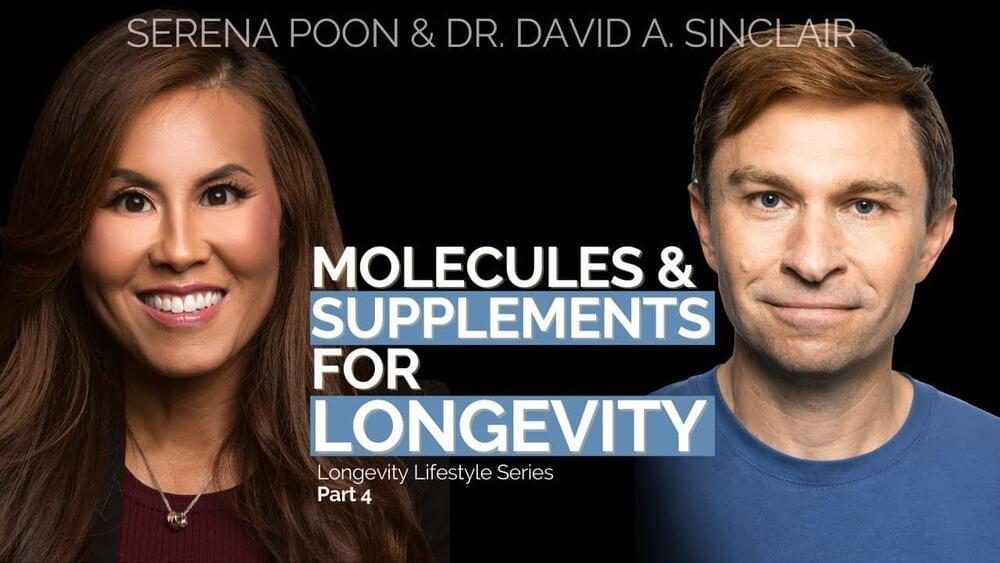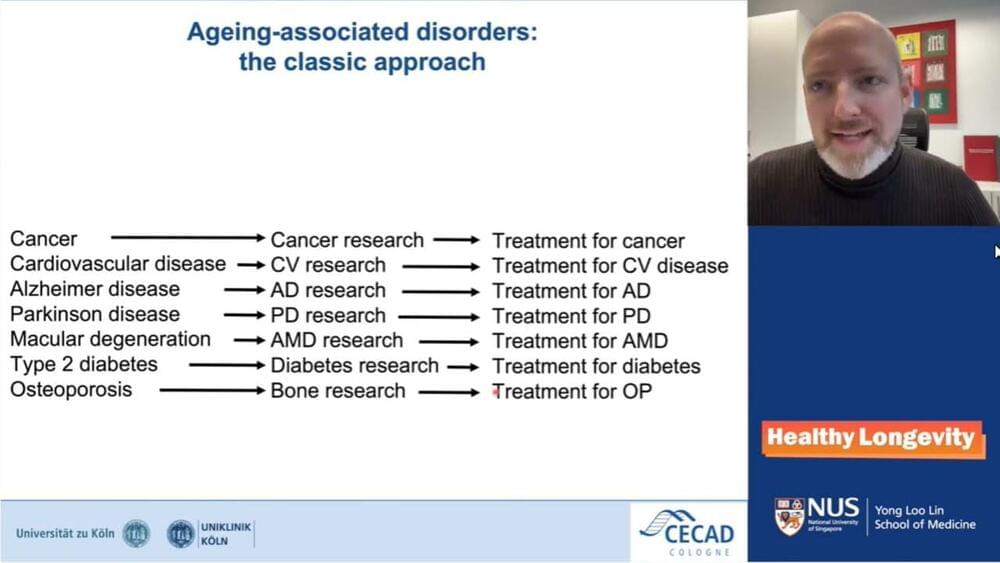Feb 12, 2022
Longevity Molecules and Supplements | Longevity Lifestyle Series P4 | Serena Poon Dr. David Sinclair
Posted by Montie Adkins in categories: biotech/medical, food, life extension
Do you have a longevity supplement stack? I do not at this time but this might help you. Interesting that Sinclair takes C60 but I heard that was not good for you. This video is annotated with many chapters.
In Part Four of our Instagram LIVE super series, @David Sinclair & I chat about molecules and supplements for longevity! Our hope is that you come away from this conversation with tangible tips and an understanding of how these types of supplements can maximize longevity.

















